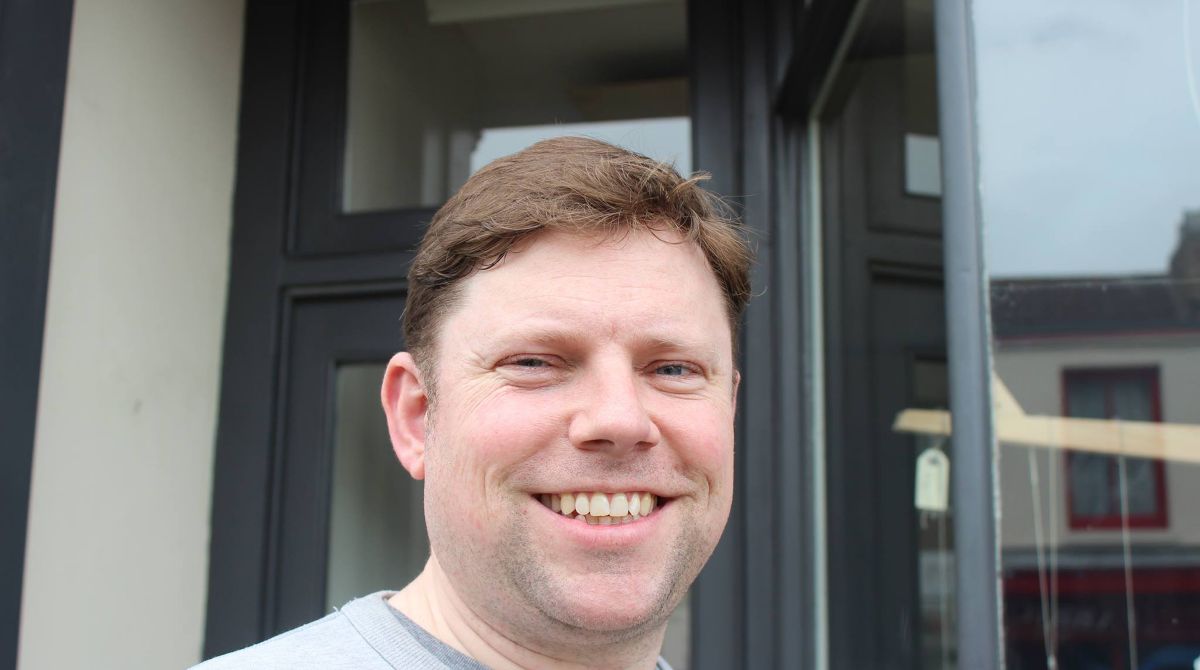Movember – Kingston University academic highlights importance of staying mentally healthy
Posted Monday 16 November 2020
 Senior lecturer in mental health nursing at Kingston University Laurie Dahl has used his personal experiences to teach students.
Senior lecturer in mental health nursing at Kingston University Laurie Dahl has used his personal experiences to teach students.
Movember is an annual event every November that encourages men to grow a moustache to raise the awareness of men's health issues, including prostate cancer, testicular cancer, suicide, and mental health. Senior lecturer in mental health at Kingston University Laurie Dahl speaks about the importance of staying mentally health in a year when people have been confined to their homes due to the coronavirus pandemic.
Our mental health, and the wellbeing of all in our communities has never been at a higher profile. Awareness of the relevance of mental health has never been higher. Until relatively recently, few now are unaware of issues such as anxiety, depression, and suicide. Campaigns such as Time to Change have had a considerable impact in challenging the stigma around mental health but the withdrawal of government funding for Time to Change shows that we have not arrived at a nirvana.
While politicians now regularly invoke mental health, and political parties at last have mental health in their election manifestos, there is still some way to go. Politicians making a statement, or speech about mental health is shorthand, a subtle signal for ‘I'm a caring politician'. Substantive funding rarely follows such statements by government. Funding the mental health services remain under such a strain that although large numbers of us know ‘it's good to talk' to manage our mental health, most of us will find that when we seek to talk to a professional we may have an unacceptably long wait. It is good to talk, but can we find anyone to listen when we need them?
It is the case that online counselling services and therapists have never been busier, as the Covid pandemic and lockdown has both increased the need and challenged the availability of services. It can still be the case that private counselling is more readily available, certainly quicker than the more expert NHS services. It is not yet clear that lockdown has worsened our mental health, although there is plenty of anecdotal evidence. How many of us feel happier in ourselves in 2020 than previously? Moods can be lower, stresses, and anxieties higher.
In the second lockdown, without the glorious sunshine of March, the gloomy days and early nights will be a challenge to us all. We will have to find strategies to manage and keep up our spirits and wellbeing. Those healthy things we can do to help ourselves are perhaps more important than ever; exercise, good sleep, hygiene, as much of a good diet as we can manage, and sensible drinking. Whatever helps us we can use, be that some chocolate, or sharing a socially distanced coffee with a friend or colleague.
It is more important than ever, as stresses are high that we help each other, be kind, look out for each other, colleagues, course mates, friends, and family. Margaret Thatcher may have said there's ‘no such thing as society' but her successors in government indicate the recognition of the importance of mental health by stating ‘we're all in it together'. It may sound glib, but together we'll get through these hardest of peacetimes.
So, as men folk grow moustaches for Movember to raise money for men's health, mental or otherwise, don't limit it to the men. Take that extra moment to genuinely ask how someone is. And if you are asked don't simply politely say you're fine, if you're not. Be prepared to offer support. Think what we can say and do to help. Genuinely caring is a very good start.
- Find out more about Movember.
- Find out more about studying mental health nursing at Kingston University and St George's, University of London.
Contact us
General enquiries:
Journalists only:
- Communications team
Tel: +44 (0)20 8417 3034
Email us



